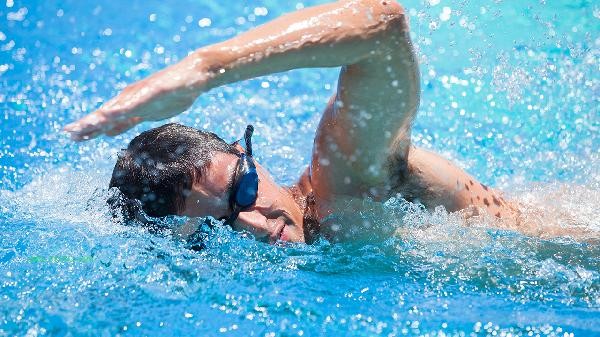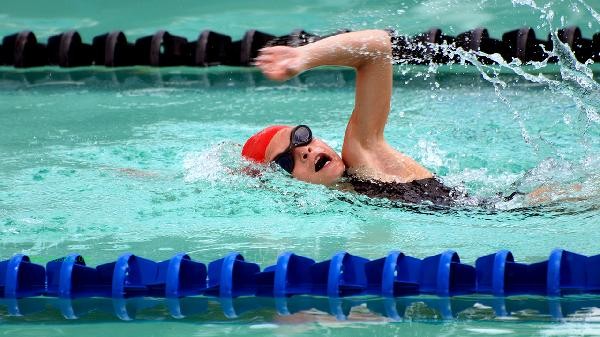Choking while swimming can be treated by stopping swimming, adjusting breathing, clearing nasal fluid, observing bodily reactions, and seeking medical attention if necessary. Choking on water is usually caused by improper ventilation, uncoordinated movements, water quality irritation, sudden cramps, excessive tension, and other reasons. Choking while swimming is a common phenomenon, and in most cases, there is no need to be overly nervous. After choking on water, swimming should be stopped immediately to avoid continuing to swim and causing the water to enter the respiratory tract deeper. Keep the body upright or use a float to stabilize and float, reducing physical exertion. Take slow and deep breaths with your mouth several times to help restore normal breathing rhythm. If there is water accumulation in the nasal cavity, gently blow the nose, but avoid damaging the nasal mucosa with excessive force. After choking on water, there may be a brief cough or throat discomfort, which can usually be relieved by resting for a while. In rare cases, choking on water may cause serious reactions. If there is persistent severe coughing, shortness of breath, chest pain, or blurred consciousness, immediately go ashore and seek medical assistance. Choking a large amount of water may lead to secondary drowning, and even if the symptoms are mild at the time, close observation should be conducted for several hours. Parents should pay special attention to the mental state and respiratory rate of children who choke on water. People with asthma or chronic respiratory diseases are more prone to complications after choking on water. It is recommended to seek medical evaluation in a timely manner. Adequate warm-up before swimming can reduce the probability of choking, and learning proper ventilation techniques can effectively prevent choking. Choosing a swimming venue that meets water quality standards and is equipped with lifeguards is safer. Avoid immediately going back into the water after choking, and it is recommended to rest until the discomfort completely disappears. Daily breathing training can enhance lung capacity and improve emergency response capabilities in water. If you frequently choke on water, you need to consider adjusting your swimming posture or seeking guidance from a professional coach.










Comments (0)
Leave a Comment
No comments yet
Be the first to share your thoughts!